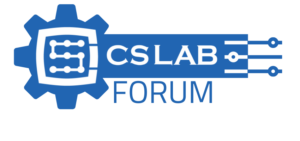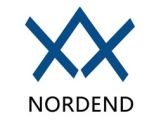CS-Lab Support Forum for CNC Community
Help to run this brand-new forum and stay with us.
Ask your questions, we are here to help!
Error during Surface Map
Quote from Fledermaus on 27 September 2023, 16:34I have been trying to use the Surface Map wizard in Mach4 to aid in the cutting of a small PCB. My problem is that as soon as the probe touches down at the first point, I get the FOLLOWING error message:
CSMIO/IP motion controller(O) Probing ERROR
State: trajProbeldle, errorType:
tperrSignalActive
Can anyone advise me what exactly this means and what might be causing it. I am keen to use this wizard if at all possible as obviates any change to the GCode during the levelling process.
Allan
I have been trying to use the Surface Map wizard in Mach4 to aid in the cutting of a small PCB. My problem is that as soon as the probe touches down at the first point, I get the FOLLOWING error message:
|
CSMIO/IP motion controller(O) Probing ERROR |
Can anyone advise me what exactly this means and what might be causing it. I am keen to use this wizard if at all possible as obviates any change to the GCode during the levelling process.
Allan
Quote from CS-Lab Support on 2 October 2023, 07:19This message appears when the probe is already active when the measurement is initiated.
Check if your probe is damaged or if the measurement start position is too low and causes crushing.
This message appears when the probe is already active when the measurement is initiated.
Check if your probe is damaged or if the measurement start position is too low and causes crushing.
Quote from Fledermaus on 16 October 2023, 21:25
Apologies for the delay in updating this topic. The above response makes complete sense to me. I observe that when the error pops up the probe is still in contact, at a dro height very close to 0mm, yet the X axis has moved on to the next point. Clearly this is exactly the scenario that would produce the observed error. The question remains: why is the probe not being raised by the block G0 Z0.5 prior to the following moves?
Having had no success with the Mach4 wizard, I decided to give AutoLeveller a run. I tried Z feed rates of 10 to 50mm/min, retract heights of 0.5, 1.0, and even 5.0mm, all with a 1mm point spacing, a probing depth to -1mm an XY feed of 1000mm/min, and rapids of 1800mm/min . I first ran the probe file generator (pfg) on my office PC, using the simulator which disregards the probe input. The probe file was generated by all of the pfg files I had tried, and was completed successfully, containing all points correctly set to -1mm .
It was a different story on the mill. All pfg files behaved in the same way, successfully probing the first two points, but generating the error at point 3. A partial probe file is actually generated, and has the correct format for the few points it contains. I have to admit I am puzzled by this behaviour, which exactly reproduces that of the Mach4 wizard. I have probed generally for several years with CSMIO, and it has been, and remains, pretty much flawless, so just what is different in these auto levelling routines I don’t know, except for the code from them being very much tighter.
Of course I don’t normally use a probe file, so my initial thoughts were that this might be causal, especially in view of the first 2 measurements, prior to opening the probe file, being error free. With this in mind, I deleted the lines containing M40 and M41 from the pfg file and ran it again, expecting it to run to the end without error. That proved not to be the case: the usual error occurred at the same point as before. Returning to the unedited pfg file, I finally ran it in single step mode. At last it ran without error, though I lacked enthusiasm to create all 200 points this way. This leads me to wonder if a timing or handshaking issue is involved.
AutoLeveller usefully generates the GCode file that is used for probing (the pfg file), and I created a zip file containing a sample of this and some other related files from the same run. Unfortunately the forum would not allow the .zip upload, but I have emailed this to CS Labs support, and hope that they can at least say whether the pfg file runs successfully on their equipment. This would indicate whether the issue is confined to my system, or whether it is generally applicable to those employing CSMIO controllers, as it appears to run fine for users with (at least some) other brands. If any CSMIO users have tested auto levelling software, it would be interesting to know how it fared.
My probe is a 3d type and can take a Z axis overrun of some 5mm. The measured (touch point - final point) machine overrun at 30mm/min is 0.01mm, and at 500mm/min is 0.27mm. It would therefore follow that a Z height of 0.5mm as used in the pfg file is perfectly OK. The probe is of lightweight design, weighing little more than the stylus, with gold plated contacts and no springs to assist its return. It is conceivable that it may be slow to make contact when it is raised, but I have seen no evidence of this being an issue in the past.
I use the IP-A with a recently installed and updated copy of Windows 10 running on an Intel NUC with Mach4 5036 and CSMIO 3.500.
Allan
Apologies for the delay in updating this topic. The above response makes complete sense to me. I observe that when the error pops up the probe is still in contact, at a dro height very close to 0mm, yet the X axis has moved on to the next point. Clearly this is exactly the scenario that would produce the observed error. The question remains: why is the probe not being raised by the block G0 Z0.5 prior to the following moves?
Having had no success with the Mach4 wizard, I decided to give AutoLeveller a run. I tried Z feed rates of 10 to 50mm/min, retract heights of 0.5, 1.0, and even 5.0mm, all with a 1mm point spacing, a probing depth to -1mm an XY feed of 1000mm/min, and rapids of 1800mm/min . I first ran the probe file generator (pfg) on my office PC, using the simulator which disregards the probe input. The probe file was generated by all of the pfg files I had tried, and was completed successfully, containing all points correctly set to -1mm .
It was a different story on the mill. All pfg files behaved in the same way, successfully probing the first two points, but generating the error at point 3. A partial probe file is actually generated, and has the correct format for the few points it contains. I have to admit I am puzzled by this behaviour, which exactly reproduces that of the Mach4 wizard. I have probed generally for several years with CSMIO, and it has been, and remains, pretty much flawless, so just what is different in these auto levelling routines I don’t know, except for the code from them being very much tighter.
Of course I don’t normally use a probe file, so my initial thoughts were that this might be causal, especially in view of the first 2 measurements, prior to opening the probe file, being error free. With this in mind, I deleted the lines containing M40 and M41 from the pfg file and ran it again, expecting it to run to the end without error. That proved not to be the case: the usual error occurred at the same point as before. Returning to the unedited pfg file, I finally ran it in single step mode. At last it ran without error, though I lacked enthusiasm to create all 200 points this way. This leads me to wonder if a timing or handshaking issue is involved.
AutoLeveller usefully generates the GCode file that is used for probing (the pfg file), and I created a zip file containing a sample of this and some other related files from the same run. Unfortunately the forum would not allow the .zip upload, but I have emailed this to CS Labs support, and hope that they can at least say whether the pfg file runs successfully on their equipment. This would indicate whether the issue is confined to my system, or whether it is generally applicable to those employing CSMIO controllers, as it appears to run fine for users with (at least some) other brands. If any CSMIO users have tested auto levelling software, it would be interesting to know how it fared.
My probe is a 3d type and can take a Z axis overrun of some 5mm. The measured (touch point - final point) machine overrun at 30mm/min is 0.01mm, and at 500mm/min is 0.27mm. It would therefore follow that a Z height of 0.5mm as used in the pfg file is perfectly OK. The probe is of lightweight design, weighing little more than the stylus, with gold plated contacts and no springs to assist its return. It is conceivable that it may be slow to make contact when it is raised, but I have seen no evidence of this being an issue in the past.
I use the IP-A with a recently installed and updated copy of Windows 10 running on an Intel NUC with Mach4 5036 and CSMIO 3.500.
Allan
Quote from Fledermaus on 17 October 2023, 14:43
Since writing the above about a week ago, I have tried various code modifications to the pfg file, mostly to no avail. Finally I have a simple workaround that allows me to use AutoLeveller. I have found that moving the block that raises the probe between measurements, G0 Z0.5, into a macro does the trick. Using Notepad++, I replaced all occurrences of G0 Z0.5 with the macro call m217. That’s all there is to it.
The 4 line macro simply executed the Z increment using mc.mcCntlGcodeExecuteWait(inst, "G0 Z0.5").
Ironically, I had already cut the pcb by increasing the depth of cut until all traces were isolated. I still had the surfaced stock, upon which the pcb had been secured with double sided tape, mounted in the vice, so I ran the modified pfg file on this stock to see if it gave plausible results. The file ran to completion without errors. The vast majority of the points deviated by no more than 0.01mm. There were a handful of outliers that differed by up to 0.04mm, but the surface contained a couple of holes, and I hadn’t bothered to clean any remaining adhesive or debris off it prior to probing, so I was well satisfied that the method was viable.
The 323 points took about 8 minutes to probe, which didn’t strike me as excessive, though I think a larger point spacing would have sufficed.
I cannot say that I am any wiser as to the underlying cause of the issue, but at least I now have a workaround that is easy to apply and will enable me to use AutoLeveller in the future.
Allan .
Since writing the above about a week ago, I have tried various code modifications to the pfg file, mostly to no avail. Finally I have a simple workaround that allows me to use AutoLeveller. I have found that moving the block that raises the probe between measurements, G0 Z0.5, into a macro does the trick. Using Notepad++, I replaced all occurrences of G0 Z0.5 with the macro call m217. That’s all there is to it.
The 4 line macro simply executed the Z increment using mc.mcCntlGcodeExecuteWait(inst, "G0 Z0.5").
Ironically, I had already cut the pcb by increasing the depth of cut until all traces were isolated. I still had the surfaced stock, upon which the pcb had been secured with double sided tape, mounted in the vice, so I ran the modified pfg file on this stock to see if it gave plausible results. The file ran to completion without errors. The vast majority of the points deviated by no more than 0.01mm. There were a handful of outliers that differed by up to 0.04mm, but the surface contained a couple of holes, and I hadn’t bothered to clean any remaining adhesive or debris off it prior to probing, so I was well satisfied that the method was viable.
The 323 points took about 8 minutes to probe, which didn’t strike me as excessive, though I think a larger point spacing would have sufficed.
I cannot say that I am any wiser as to the underlying cause of the issue, but at least I now have a workaround that is easy to apply and will enable me to use AutoLeveller in the future.
Allan .
Quote from CS-Lab Support on 18 October 2023, 07:54When I get an email with the gcode for probing, I will check it and let you know if I find anything strange.
I haven't received anything by email yet.
Please, send me:
- unmodified gcode,
- modified gcode,
- M217 macro.
When I get an email with the gcode for probing, I will check it and let you know if I find anything strange.
I haven't received anything by email yet.
Please, send me:
- unmodified gcode,
- modified gcode,
- M217 macro.
Quote from Fledermaus on 18 October 2023, 23:17
Sorry to hear that, I sent the original email to 'support@cs-lab.eu at 20:34 (UK time) on Monday 9th October.
I have included the additional files you requested in the .zip file here. If this will not upload to the forum, I will email it to you.
PFG.NC is the original probe generator code file.
ProbeFile.txt is the complete probe file output from this run.
Mach4LOG.TXT is the log from this run .
AbridgedHistory.txt shows when the probe signal was detected Within the Mach4 Signal scriptb.
PFGM217.NC is the modified pfg code file requiring the m217 macro.
ProbeFileM217.txt is the probe file output by the modified script.
Thanks
Allan
Sorry to hear that, I sent the original email to 'support@cs-lab.eu at 20:34 (UK time) on Monday 9th October.
I have included the additional files you requested in the .zip file here. If this will not upload to the forum, I will email it to you.
PFG.NC is the original probe generator code file.
ProbeFile.txt is the complete probe file output from this run.
Mach4LOG.TXT is the log from this run .
AbridgedHistory.txt shows when the probe signal was detected Within the Mach4 Signal scriptb.
PFGM217.NC is the modified pfg code file requiring the m217 macro.
ProbeFileM217.txt is the probe file output by the modified script.
Thanks
Allan
Quote from CS-Lab Support on 19 October 2023, 13:06I've got your files. As soon as I have some free time I'll take a look at them.
I've got your files. As soon as I have some free time I'll take a look at them.
Quote from Fledermaus on 19 October 2023, 15:58Good to hear that, and thanks for letting me know. I can't figure why .zip files are rejected by the forum when it states they are accepted. This surely would be a useful feature.
I very much look forward to your observations in due course.
Allan
Good to hear that, and thanks for letting me know. I can't figure why .zip files are rejected by the forum when it states they are accepted. This surely would be a useful feature.
I very much look forward to your observations in due course.
Allan
Quote from CS-Lab Support on 20 October 2023, 14:03I've done some initial research, and I will be running tests on Monday to look for the problem.
I've done some initial research, and I will be running tests on Monday to look for the problem.
Quote from Fledermaus on 20 October 2023, 22:45Good to hear you were able to look into this so quickly, many thanks.
Allan
Good to hear you were able to look into this so quickly, many thanks.
Allan






















